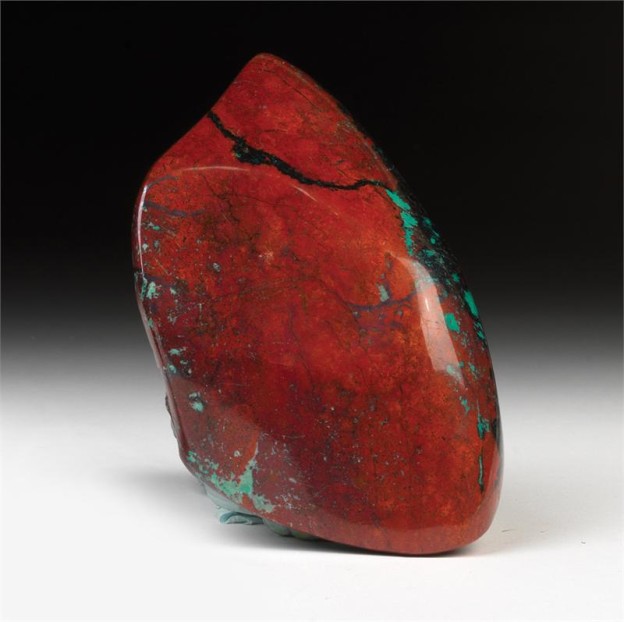Description and Facts of Cuprite Stone
The name kuprit comes from the Latin word cuprum – copper.
Cuprite is a copper mineral. The color of the crystals is reddish-crimson, dark red, almost black. There are minerals with green patches. Gloss – low metal, diamond.
Hardness – 3.5 – 4.0; density – 1.3 – 2.6 g / cm3.
The main deposits: Russia, Japan, Australia, Africa, USA, Chile.
Medicinal properties
In folk medicine, there is a perception that cuprite can have a beneficial effect on the circulatory system, normalize the menstrual cycle. In some countries, this mineral is used to rid a person of alcohol and nicotine addiction. Healers believe that cuprite can be used for the rapid resolution of internal hematomas, as well as improving the overall tone of muscle tissue.
Magical properties
Cupriteuseful to people who do not know how to restrain their emotions. According to connoisseurs of stones, each owner of this gem becomes a calm and balanced person. However, the mineral has negative traits. For example, he lulls the vigilance of a person, narrows and confuses his consciousness, forcing him to make fatal mistakes, subordinates his power to illusions. Kuprit is far from the problems of people, it is intended for other purposes. In affairs the stone is simply a hindrance, an obstacle in his personal life. The mineral should only be used so that its owner can determine whether he is a good person or a bad person. People who are sympathetic to deception, fraud and other unseemly acts begin to feel uncomfortable (and even fall ill) while wearing a stone. The purer and nobler a person’s thoughts are, the more favorably a stone treats him,
Astrologers recommend using the power of the stone cuprite only in case of a waning moon fire signs – Aries, Leo, Sagittarius. The rest of the signs of the zodiac wear cuprite is not desirable.
Talismans and amulets
Kuprit is not used as a talisman. He is only the judge of his owner, suggesting what defects and defects a person should get rid of.
Interesting – from the story. In the past, while finding cuprite in association with brown iron ore, native copper and other oxides, it was called brick, resin, and liver copper ores. The bulk of these ores went to smelting at the Vyisky plant, founded in 1721 by the former owner Nikita Demidov. This plant was one of the first copper smelters in the Urals, to which at that time the first railway in Russia from the Mednorudyanskoe deposit was carried out.
From the moment of discovery of the Mednorudyansky deposit (1814-1896), about 100,000 tons of red copper were smelted from the mined ore mass of 3076980 tons, and as a result, until the foundry of the copper-smelting production was smelted, they made household utensils, tools and for minting copper coins. There are clusters of cuprite with native copper and malachite in the nests of brown ironstone (Yossa 3rd, 1839) described cuprite crystals in the form of a regular octahedron, cube, rhombic dodecahedron, and in combinations of these forms. The size of the crystals reaches 20 mm. often together with well-developed red cuprite crystals and native copper in the “spongy” brown iron ore there are olivite, tagilite, asperalit. According to the oral report A.Yu. Boldyreva, beautiful cuprite crystalsin a combination of a cube and an octahedron, they were found in large numbers in a modified garnet rock. The size of the crystals reaches 1.5 cm, in some places they are collected in drusen. Samples of brown ironstone were encountered in which the cracks were made with cuprite crystals overgrown with radiant malachite. Sometimes fancy aggregates of radial-radiant malachite grow into single cuprite crystals.
The voids found in brown iron ovaries are often completely covered with crystal brushes of cuprite.

